- Home
- Tim Lebbon
Ten-Word Tragedies Page 15
Ten-Word Tragedies Read online
Page 15
Your suggestion to consult (or re-consult) mythology and/or folklore is spot on. It’s smart and wonderful and imbued with foresight and wisdom. If only I could convince the rest of us to see our folly, and the importance of a name. A rose by another and all that…If it was up to me, I would have you named to our board of directors this instant.
Howard, let me run this by you:
Perhaps if you were to come to our complex and make a presentation it would change hearts and minds and collectively course correct our branding vision, maybe even our overall vision for the future of the group. We are not going to stop at simply producing smart vehicles—as I’m sure a man of your frankly historic intellect has already surmised. We are going to change all aspects of life and society with our products and improvements upon other products. Our products will become more than a lifestyle. Our products will be integrated within our consumers’ very being—entertainment, communication, fashion, health, exercise, the sleep we sleep, the dreams we dream, the food we eat, the water we drink, the air we breathe, the people we people, and more and more and more.
In this, the dawn of our rise, you’ll be our eye-glasses, Howard, so WE can see 20/20. Better than 20/20.
Your presence within our complex would be an event, sir. Standing room only. The cafeterias and break rooms would be empty; metaphorical tumbleweeds would roll through the empty halls and offices and cubicles. The applause with which you’d be greeted would deafen strong ears. We would cheer, cry, hug our fellow coworkers, and exclaim in the exuberance of ensured victory. It would take minutes for the ovation to stop and would stop only when you raised a hand. Then we would listen. We would be yours.
Of course you could begin your presentation by telling (showing?) us how you came to be in possession of the substance (you already know we struggle with branding, so yes, we call it, simply, humbly, ‘the substance’). Where and how did you find it? Did you make it or discover it or something-else it? Did you realize what you’d discovered when you discovered it? Do you cultivate it on your land, or within your home, in the basement (we’ve found it grows best in a dark, dank environment)? Are you a closet mycologist or any-other-ologist? Have you used it yourself and discovered its limitless benefits? Have you tried consuming any of the substance (our results have been hit and miss—to be kind)? Can you tell us how handling the substance has changed/improved you? Why did you mail it to us? Have you sent it to anyone else? Should we be worrying about competitors or corporate espionage? Are you looking to enter our group in a bidding war (we are nothing if not prepared to battle)? Do you realize that you cannot and will not stop our progress should you decide to not give a literal or metaphorical blessing (we don’t mean for that to sound like a threat)? Have you told any family or friends or neighborhood busy-bodies about the substance? Loose lips at a local bar (we are not implying you have a problem with alcohol or substance (not that substance) abuse) or within your faculty room?
Sharing some or all of that information would have us eating out of your hand(s). We would be your putty (no pun intended). Then you could present to us your idea(s) for naming the Super-Van (my suggestion), and we would all live happily ever after. And the group will grow and spread from there. I am not hyperbolizing.
May I ask this of you, Howard? Don’t answer. Allow me: I may. I may ask this of you and I must ask this of you, given all that has transpired.
We will pick you up in the van-that-has-yet-to-be-properly-named (and you could experience its wonder-ness for yourself) and you will come to our complex and you will have a tour and you will be the first non-group member to see the growing room, and you will then give the ultimate presentation, a presentation to end all presentations, the one that exists within Plato’s cave and the world of forms, and you will be rewarded handsomely, of course. Consultants often can name their own price (I’ll name one for you so the GROUP’s answer won’t be no or to haggle. We do so love to haggle).
I’ve prattled on too long. Howard, we will be arriving tomorrow afternoon with tears of pride and anticipation in our shining eyes.
Yours, Always, Yours
Terrance Norton
CIRCE GROUP
Howard fretted. He made the mistake of imagining their shining eyes.
There was so much to parse from this letter in addition to the quirk of the last line (‘tears of pride and anticipation in our shining eyes’ instead of ‘tears of pride and anticipation shining in our eyes’: was this a hurried error or was it purposeful if not a literal representation of their eyes?). Howard reread the letter’s first page and then he read it out loud twice. Terrance employed an appealing and non-threatening speech pattern and rhythm, the syntax and syllable count optimized. It was a symphony of language working in concert with the environment, the temperature and dew point, etc. The man hit the loftiest high points of flattery, all of which Howard greatly appreciated as empty as it likely was (still, it was nice), while engendering an insidious curiosity about the group, of who they were and what they did and what they had been sent.
Howard was sitting at his computer nook and he looked over his shoulder at his little, empty house. He briefly took a mental tour of the interior; floating into and through the immaculate, spartanly decorated, lonely rooms. This vision suddenly had the terrible weight of premonition and futility, and a sadness swelled, similar to (but different in an ineffable way) the shade of sadness that overtook him whenever he considered the inevitable prospect of permanent retirement from education.
There, in the near constant quietude of his home, his twilight home, Howard wanted to be picked up, wanted to ride in the magically blue van, and wanted to go to the complex, and stand before their crowd and accept their adulation, whether or not it was warranted.
What were Terrance and the group going to say or do once they inevitably figured out that Howard was not the source of their parcel and the substance? The ‘mycologist’ reference and Terrance stating the substance grew best in dark, damp environs seemed to be tells or giveaways as to what the substance was. But how could organic, fungal matter have yielded the WunderKar? He shuddered—not entirely unpleasantly—at the thought of the Libido Rub.
Perhaps now he had enough information to make the presentation. He could research various fungi online and fumble his way through a speech, maybe even a Power Point slide show. Still, there was no way around there being unavoidable consequences once CIRCE GROUP figured out he had not sent them the substance.
Howard tried deciding he didn’t care and he would deal with whatever he would have to deal with the moment that reveal happened and not a moment before, which was so out of character he laughed at himself. He imagined the WunderKar arriving to pick him up and Terrance greeting him with a smile and a hug (Howard was not a hugger, did not like contact, but he would make an exception), Terrance looking like his old high school friend Woody Piacenza (he of the red hair and surprising baritone and freckles and bowl-haircut), whom he hadn’t seen or heard from in decades but found himself thinking about at odd moments. He imagined the interior of the WunderKar would be white and clean and soft and it self-navigated through private woods and secret unpaved access roads until they reached a clearing and the complex, which was a geodesic dome full of sparkling windows and like the WunderKar, it was made of arcs and smoothed lines and its girder skeleton was visible and the same living blue as the WunderKar, and inside, the complex floors and walls were white and clean and the hallways were more like tubes, the passageways of a honeycomb, the secret paths within a living organism, and Terrance’s coworkers were happy to meet Howard and everyone’s eyes shined (Howard didn’t like that, but once the image was in his head he couldn’t be rid of it), and the tour went below ground, and the tunnels were tinted red, a healthy red, a blood red, and to the cavernous growing room where the substance was kept in the dark so he couldn’t see it but he knew it was there, so he didn’t linger there in the dark, the deepest of darks, and then he was led upstairs to a grand auditorium near the top of
the complex and the roof above them was made out of glass so refined it was as though there was no roof at all, and the group’s applause at his introduction was a warm river, and then the lights would dim, the windows self-tinting and going dark, and a spotlight, and his presentation.
Only there would be no presentation. Howard would not go with Terrance or anyone else. He could not go.
He knew this all could be an elaborate prank, a ruse with no greater purpose than amusement for the perpetrator(s) or perhaps he was being set up and this group would be making a cash grab next, and, yes he was self-aware enough to realize he’d spent the better part of his later life researching and believing (or wanting to believe, which is the same thing) all manner of conspiracy. Howard considered all these things and more but he decided what was in the letters was in fact the truth because it felt like the truth, a terrible one that should remain hidden.
Howard folded the two-page letter and placed it back inside the envelope and suppressed the urge to hide it or destroy it so that he might be able to feign ignorance as to its existence.
Howard then wrote his second and last note to the group.
Dear Terrance,
It is with more than a little regret that I am writing to inform you that I did not mail the group a parcel, certainly not one with any sort of substance. I may have written a letter, which somehow found its way to your desk, but not a parcel or a package.
I apologize for not calling your attention to this mistake sooner. I cannot properly explain why I did not. It’s, shall we say, complicated. For that, I also apologize. I wish you and the group all the best with your endeavors.
Sincerely,
Howard Sturgis
The next morning Howard called in sick to school. It didn’t feel like a lie because he felt ill; his stomach churned and stung. Nausea kept him from eating anything more daring than a plain English muffin.
He split time pacing through his one-floor home and engaging in fruitless Internet searches for information on the group until the morning became the afternoon, until he heard the high-pitch whine of an engine that sounded like his hybrid car’s when powered solely by the battery. As the sound got closer, there was a lower frequency growl at the edge of the audible range, and it made his nausea worse.
The WunderKar parked in front of his house. Howard only glanced out of his front window at the blue blur, afraid he would be spotted by the driver and/or passenger(s). Howard had originally planned to hide in his bedroom and ignore the doorbell, their knocks, and their entreaties with the hope that once they read his note they would leave him alone.
Plan B. Howard crept through the kitchen and out the rear slider. It was the WunderKar’s sound that sent him scurrying across his leaf-filled back yard and into the brush. He crouched and quietly skulked among the fir trees before ducking behind the partially collapsed remains of a stone wall (about thigh-high; he had attempted to restore a missing section of the wall on his own a few years ago but one afternoon of lifting stones was too much for his back) that snaked off deeper into the woods, delineating someone’s long forgotten property lines. Howard found a protected (he hoped) sightline to the WunderKar, with its glowing, sparkling blue that gave the appearance of movement, of rippling flesh. The sound of its engine, or the echo of the sound, or the outline of a frequency he couldn’t identify or properly hear, or the sensation of the sound on his skin, which permeated into his tissue, into his very being so that he was hearing without hearing, that un-sound was worse now than it had been when he fled the house. It blurred his vision and took root painfully in his head.
As though sprung from a trap, Terrance (he never identified himself as such but he didn’t have to) shot out of the front passenger door and stood triumphantly on the front lawn. He was dressed in non-threatening tan khakis and a white polo shirt that showed off his fit (but not too fit) and tan (but not too tan) arms. His brown, red, and silver beard was perhaps too full but it gave his vulpine face character. His eyes did indeed shine.
Terrance tapped the WunderKar and the side panel swooped upward, unfurling like a wing. The van’s interior shined an antiseptic white. There appeared to be an L-shaped, cream-colored bench seat that traced the driver’s side wall all the way to the rear of the vehicle. There were no other seats or chairs taking up the rear passenger space.
Terrance jogged to the house’s front door, which wasn’t visible from where Howard hid. After a moment or two of silence, the doorbell rang out. Then it rang out again. Terrance did not knock. Howard held his breath and crouched lower behind the stones.
Terrance eventually emerged, walking slowly away from the house and reading (or rereading) the note Howard had left taped to his front door. When Terrance was again standing beside the WunderKar he folded the note and slid it into a back pocket. He said something Howard couldn’t hear and two people spilled out from the van, from out of the rear interior that had been empty only moments ago. They were dressed the same as Terrance and their eyes shined too. They marched down the thin cement walkway to Howard’s house and opened the locked front door, roughly by the sound of it.
Terrance and his group-mates spent a considerable amount of time inside the house. Howard didn’t have his phone or a watch so he could only mark time with the dimming afternoon light, dropping temperature, and the worsening body aches from his protracted crouched position. They did eventually leave, though Howard remained in the woods for hours afterward. He remained in the woods lying on the ground behind the stones until it was dark. He remained in the woods lying on the ground behind the stones and in the dark until the memory of the WunderKar engine’s nauseating, nerve-stripping pulse could do him no more harm.
Howard shivered and staggered through his yard and slunk inside his home through the back slider. He walked through every room turning on the lights, although he was afraid of what he might find with each flick of each switch.
Nothing in the house looked amiss in the weak sepia glow of his energy efficient light bulbs (he kept only one bulb instead of the two required within most of his lamps and fixtures). If the group had taken or moved anything, he couldn’t tell.
What had they been doing in his house for all that time? He checked his computer browser history and there was no evidence that anyone else had logged on or had tampered with his files. He figured people like that probably knew how to leave no digital trail or evidence behind and now he wondered if the group was a double-secret, deep state government agency who were keeping tabs on him.
So it was that everything in the house began to look staged and too normal, as though Howard had been outside and alone in the woods for an epoch before returning to a home he no longer recognized. There was something sinister in the sameness, or, more subtly, the something sinister was revealed by the sameness: the futility of his choosing to continue to play out the string while giving up the opportunity for not-sameness offered by Terrance and the group.
As dim as the light was inside his house, the darkness outside his windows was extra inky and thick. Howard imagined the group uprooted his home and then painstakingly relocated it somewhere else, perhaps in the basement of their complex, within their growing room.
Howard shuffled to the front door, careful to not breathe too loudly. He hesitated with his fingers wrapped around the cold doorknob but he eventually opened the door. There was more of the sinister sameness: the quiet street and neighbors’ homes cloaked in autumn’s heavy, soporific darkness, his uneven walkway path through his dying grass—but at his feet, on the front stoop, was a letter and an unsealed, cube-shaped cardboard box, the top flaps folded over each other to keep them closed. The box was not large or heavy, and he cradled it in the crook of one arm. He brought it inside.
The letter was handwritten. The ink was black.
Howard, you don’t understand. You most certainly sent us the package. Even if you don’t remember doing so, even if you sending us the package was somehow as accidental and unintentional and nonsensical as primordia
l life’s initial spark from nothingness into being.
No matter. We do not make mistakes. As I’ve already told you, we make improvements.
T.
Howard sat at his computer desk with the box in his lap. He read the note two more times. Then, unsure of what to do with it, he placed it within the nook of his computer desk in which he kept other forgotten scraps.
He opened the box, the interior of which was lined with what appeared to be wax paper. At the bottom was a layer of flaky, crumbly substance that looked like dried manure but for its blue color. Howard didn’t hesitate and filled the box with his hands. The substance didn’t feel as dry as it looked. It was warm, moist, but not wet, and he luxuriated in passing the substance between his fingers and palms. He carefully lifted his hands out of the box. The blue substance was both granular and fibrous and it filled in the jagged, cracked lines of his aged skin. His hands shined and Howard felt as though he was falling away from himself and into something else, and it was what he wanted. Was that what he wanted?
Howard held his breath and flexed his fingers and listened to the quiet of his house which suddenly didn’t sound so quiet. There might’ve been footsteps coming up his basement stairs and the WunderKar might’ve been pulling up to his house again. Before he would again lose his nerve, he scooped more of the substance from the box and applied it to his forearms, his neck, his face, and his eyes.

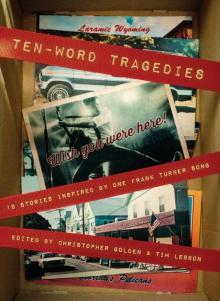 Ten-Word Tragedies
Ten-Word Tragedies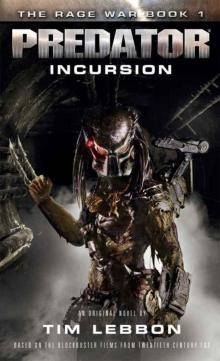 Predator: Incursion
Predator: Incursion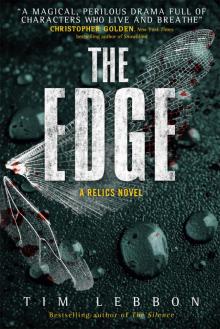 Relics--The Edge
Relics--The Edge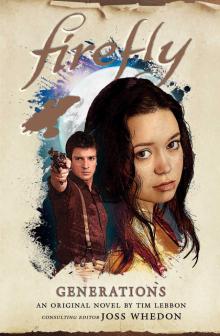 Firefly
Firefly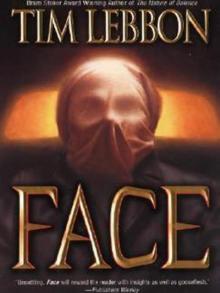 Face
Face Generations
Generations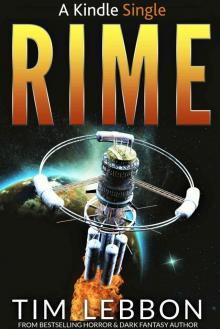 RIME (Kindle Single)
RIME (Kindle Single) Fallen
Fallen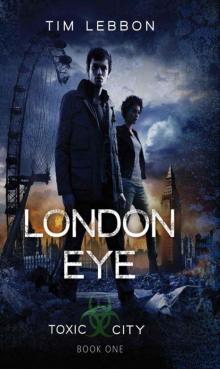 London Eye tc-1
London Eye tc-1 Kong: Skull Island
Kong: Skull Island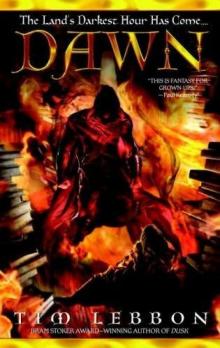 Dawn n-2
Dawn n-2 Into the Void: Star Wars (Dawn of the Jedi)
Into the Void: Star Wars (Dawn of the Jedi)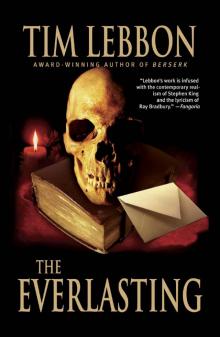 The Everlasting
The Everlasting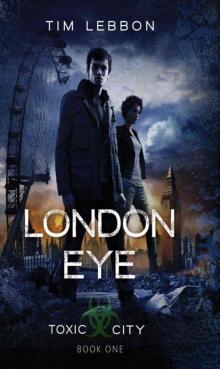 London Eye: 1 (Toxic City)
London Eye: 1 (Toxic City)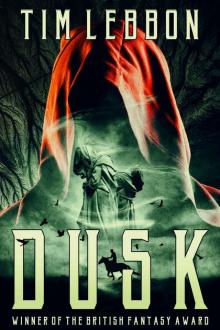 Dusk: a dark fantasy novel (A Noreela novel)
Dusk: a dark fantasy novel (A Noreela novel)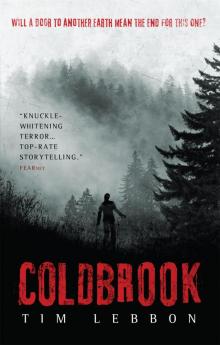 Coldbrook
Coldbrook Alien
Alien Dusk
Dusk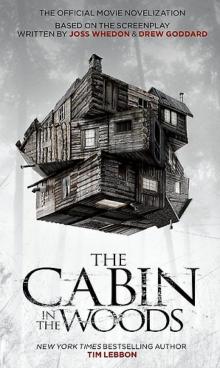 The Cabin in the Woods
The Cabin in the Woods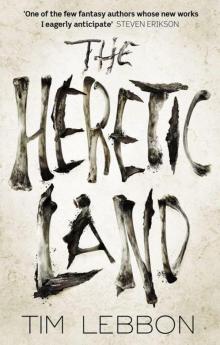 The Heretic Land
The Heretic Land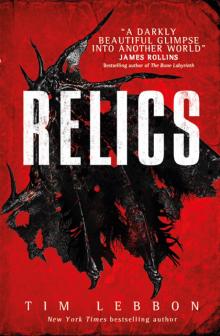 Relics
Relics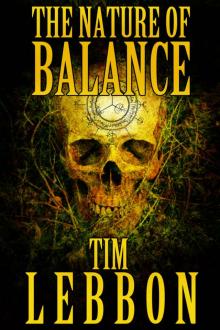 The Nature of Balance
The Nature of Balance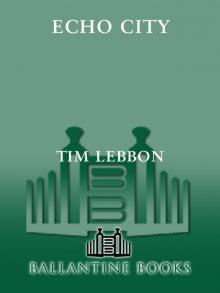 Echo City
Echo City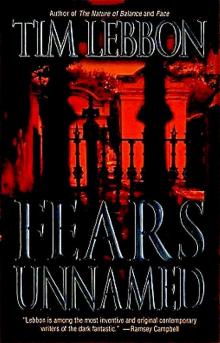 Tim Lebbon - Fears Unnamed
Tim Lebbon - Fears Unnamed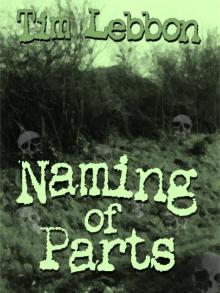 Naming of Parts
Naming of Parts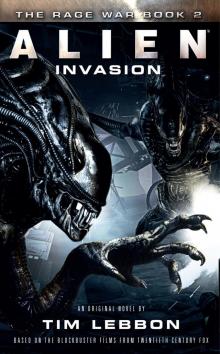 Alien--Invasion
Alien--Invasion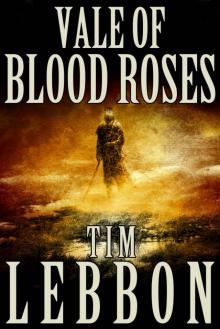 Vale of Blood Roses
Vale of Blood Roses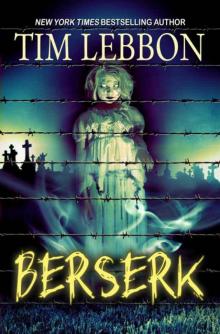 Berserk
Berserk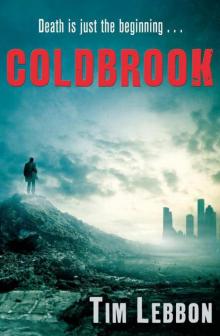 Coldbrook (Hammer)
Coldbrook (Hammer)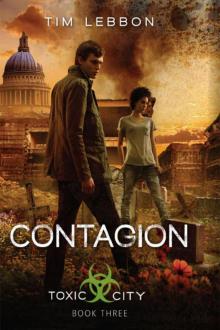 Contagion tc-3
Contagion tc-3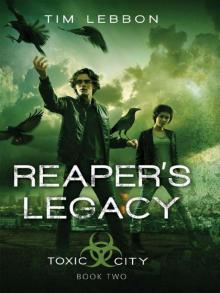 Reaper's Legacy: Book Two (Toxic City)
Reaper's Legacy: Book Two (Toxic City)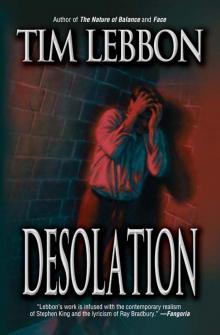 Desolation
Desolation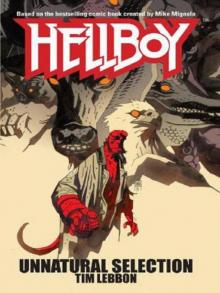 Unnatural Selection
Unnatural Selection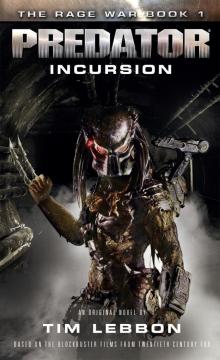 Predator - Incursion
Predator - Incursion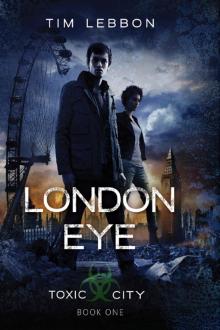 London Eye
London Eye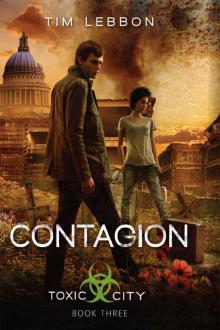 Contagion (Toxic City Book Three)
Contagion (Toxic City Book Three) The Silence
The Silence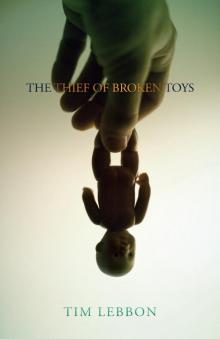 The Thief of Broken Toys
The Thief of Broken Toys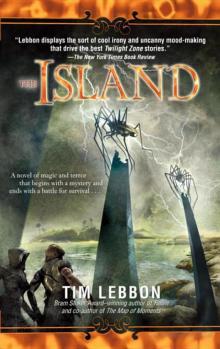 Tales of Noreela 04: The Island
Tales of Noreela 04: The Island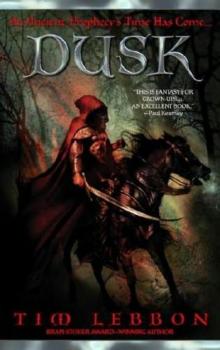 Dusk n-1
Dusk n-1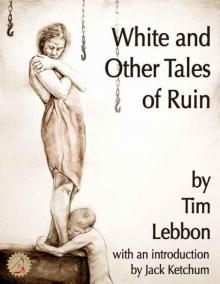 White and Other Tales of Ruin
White and Other Tales of Ruin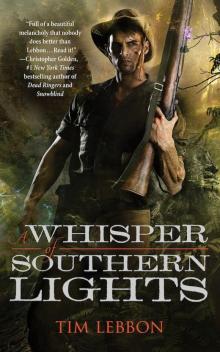 A Whisper of Southern Lights
A Whisper of Southern Lights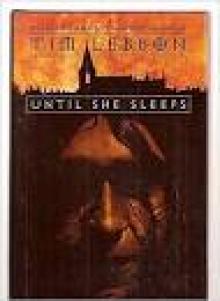 Until She Sleeps
Until She Sleeps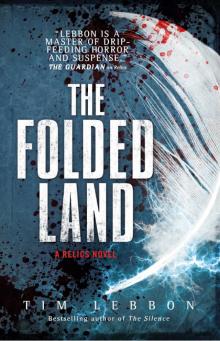 Relics--The Folded Land
Relics--The Folded Land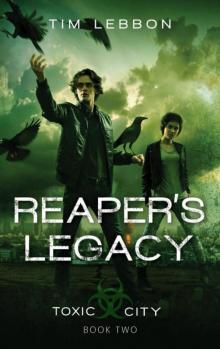 Reaper's Legacy tc-2
Reaper's Legacy tc-2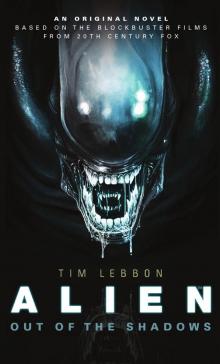 Alien: Out of the Shadows
Alien: Out of the Shadows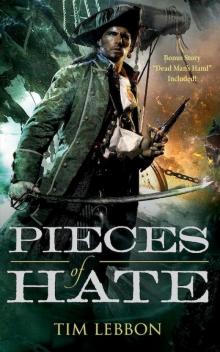 Pieces of Hate
Pieces of Hate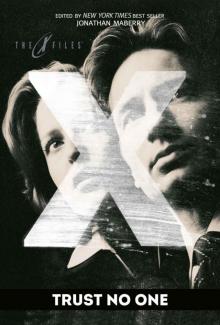 X-Files: Trust No One
X-Files: Trust No One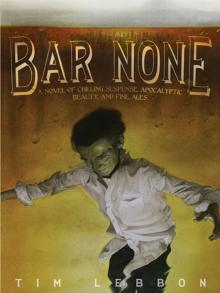 Bar None
Bar None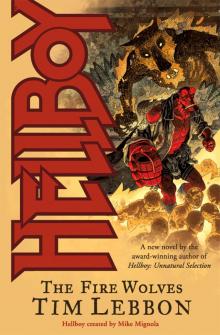 The Fire Wolves
The Fire Wolves